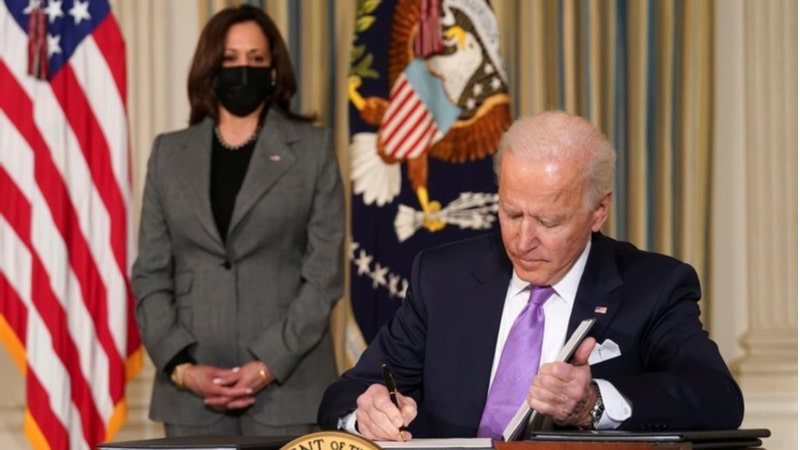
President Biden today signed the Chips and Science Act, after the legislation was approved by both the House and Senate late last month.
The bill received significant bipartisan support in both legislative chambers, with the House approving the measure by a vote 243-187, and the Senate passing the bill on a vote of 64-33.
The primary tech-related provisions in the Chips and Science Act were resurrected from the more wide-ranging USICA/COMPETES legislation that failed to progress through a House-Senate conference committee earlier this year.
The version of the bill signed by President Biden today includes $52 billion of funding for the CHIPS Act which would fund incentives for semiconductor makers to establish new manufacturing plants in the United States.
The bill also would provide $100 billion over five years for research and development activities in regional hubs around the U.S., and for the National Science Foundation (NSF) to establish a new technology directorate.
The “science” portion of the bill would give $81 billion to NSF for overall research and development activities over five years, according to MeriTalk’s analysis of the legislation. The agency’s new technology innovation directorate will be funded from that budget, and will initially focus on areas including artificial intelligence (AI), high performance computing, and quantum information science.
The bill further directs the Department of Commerce to create 20 “regional technology and innovation hubs” aimed at stimulating technology development and “expanding U.S. innovation capacity.”
“The law requires that any company that receives Federal resource development will have to make that technology they’ve invented here in America. That means we’ll invest in America and make it in America,” said President Biden today when he signed the Chips and Science Act.
“We’re going to make sure we include all America, supporting entrepreneurs and technological hubs. Across America, including historic black colleges, universities, minority serving institutions, tribal colleges, we’re going to tap into our greatest competitive advantage – our diverse and talented workforce, urban, rural, suburban, and tribal,” President Biden said.
Industry leaders have applauded the legislation as a means to help industry rebuild the domestic semiconductor industry.
“Today marks the start of a new American age of innovation. With the CHIPS and Science Act, we can be confident that the global digital economy will be fueled by semiconductors made in the United States,” said Jason Oxman, CEO at the Information Technology Industry Council. “On behalf of the global tech industry, ITI looks forward to partnering with the U.S. Commerce Department and other agencies as the law is implemented to ensure that the benefits are quickly realized across the country.
